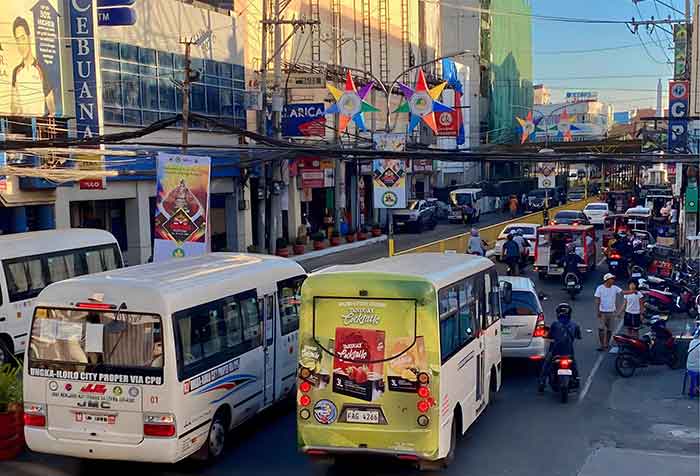
By Rjay Zuriaga Castor
With the increasing number of vehicles and worsening traffic, Iloilo City may consider implementing a number coding scheme for private vehicles or a similar policy to restrict vehicle movement, according to transport agencies.
The Land Transportation Franchising and Regulatory Board (LTFRB) and the Land Transportation Office (LTO), agencies under the Department of Transportation, suggested that Iloilo City’s traffic situation might soon require a road space rationing system for better management.
“If there is a way, maybe even at this time, we can already consider that option of having a color coding or number coding scheme,” Atty. Salvador “Jun” Altura, officer-in-charge of the LTFRB-6, told Daily Guardian.
Altura emphasized that the number of private vehicles in Iloilo City and nearby towns is expected to continue rising over the next three years due to the increasing purchasing power of residents, which he identified as “a potential traffic problem.”
He clarified that such a regulation should be adopted by the local government unit, as it falls under its police power.
“There is no regulation that prevents LTO or LTFRB from not registering vehicles that are registrable […] For as long as our offices, our department, allows this public transport to operate, we will continue to issue their franchises,” he added.
Several areas in the country, including Metro Manila, Cebu City, Baguio City, Dagupan City, and Cavite, have implemented number coding schemes to manage traffic congestion.
In Metro Manila, the number coding scheme restricts both private and public utility vehicles (PUVs) based on the last digit of the vehicle’s license plate, enforced during weekdays and holidays.
Meanwhile, LTO Assistant Regional Director Gaudioso Geduspan II said the coding scheme for private vehicles is a possibility due to the number of vehicles registered daily.
“In fact, from what the LTO data shows, we observe an increasing trend in the number of vehicles being registered,” he told Daily Guardian.
Geduspan believes this traffic management policy could be implemented within the next two to three years, considering the significant increase in vehicle ownership in Iloilo City and province.
The LTO official further maintained that traffic in Iloilo City is not yet critical and is “still manageable.”
“With the advent of development such as modernization, perhaps [we have reduced the] number of unconsolidated units from the highways,” he said.
LTO data showed that Iloilo City and province had 103,195 private vehicles registered from January to May this year, lower than the 160,136 registered in the same period in 2023.
Meanwhile, PUV registrations increased to 25,511 from last year’s 13,492.
Based on LTO figures, Western Visayas has 234,386 private vehicles and 48,168 PUVs as of May.
Private vehicles are defined by the LTO as motor vehicles used solely for personal purposes, not for carrying passengers or cargo for profit. PUVs, classified as “vehicles for hire,” include passenger vehicles like cars, buses, taxis, jeepneys, and commercial vehicles like trucks and containers.
Earlier this May, Mayor Jerry Treñas announced plans to implement car-free Sundays on Calle Real in the city’s downtown area.
Treñas said consultations with private communities and business groups in the area will be conducted for the initiative’s implementation.
“I have requested the City Mayor’s Office legal team to coordinate with the pertinent city council committees for a carless Sunday, even if initially twice a month at the Calle Real. Proper consultations with the private communities affected and other business groups will be made soon,” he said.




















